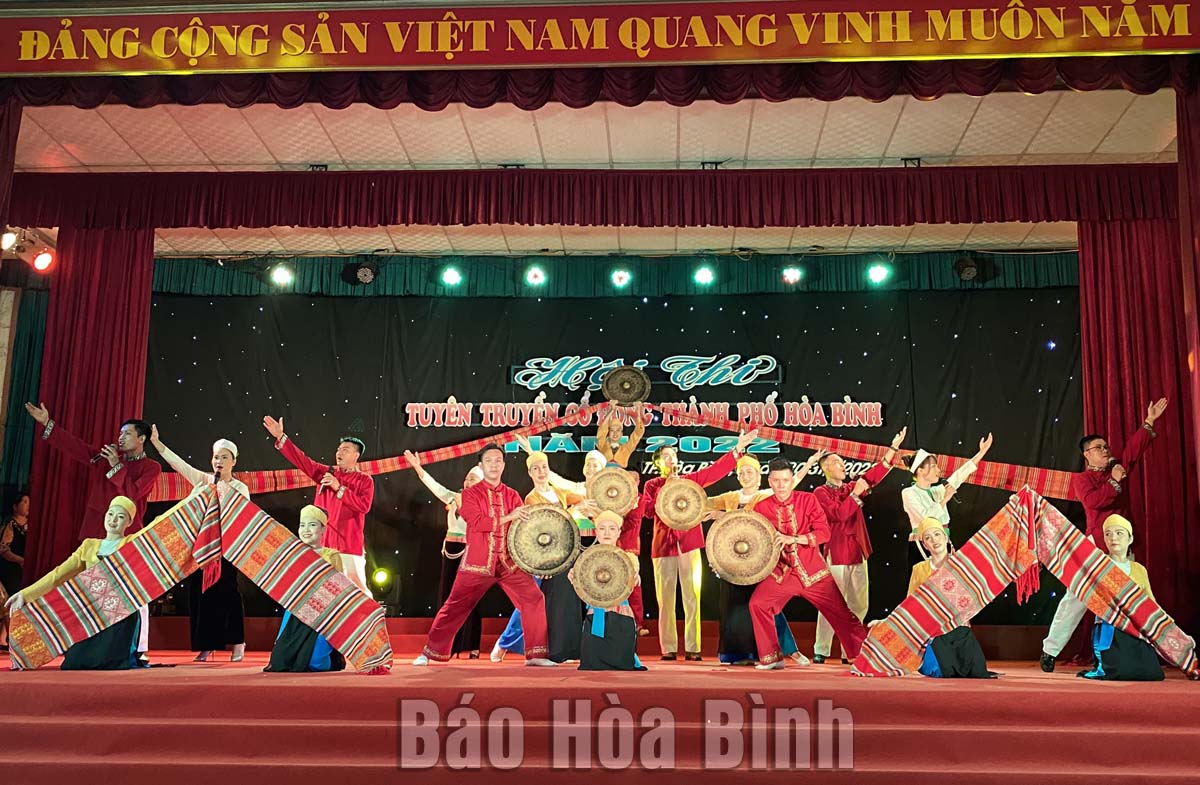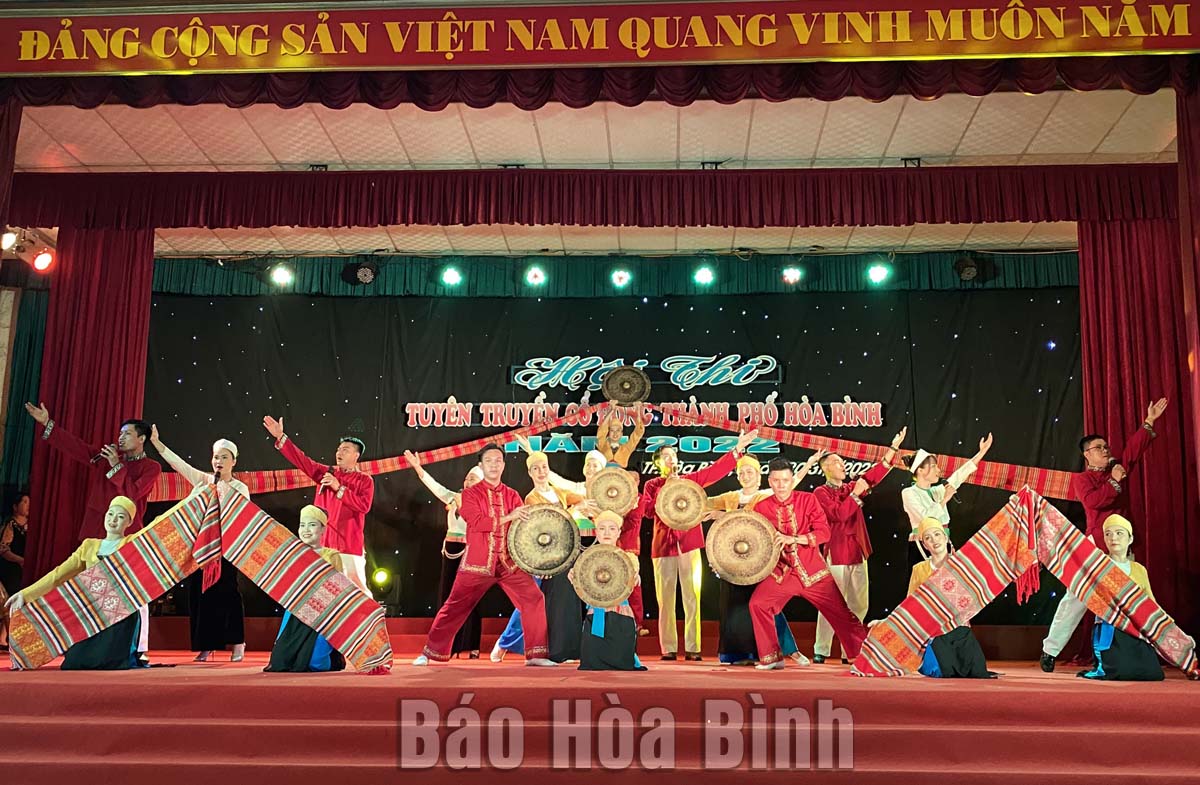
(HBO) – Hoa Binh City hosted a popularisation competition from July 30 – 31, bringing together nearly 500 performers and presenters from 19 commune- and ward-level teams.

A performance at the provincial popularisation competition.
Contestants competed in four categories,
including verbal popularisation, singing, dancing and theatrical acts.
Performances focused on praising the Communist Party of Vietnam and President
Ho Chi Minh; promoting new-style rural development; COVID-19 prevention and
control; and preserving the national cultural identity, etc. Each performance
lasted no longer than 30 minutes.
According to the Organising Committee, this year
all teams have prepared thoroughly in terms of content, setting, acting,
costumes and others. Their performances were consistent in the theme, lively,
easy to memorise and comprehensible, and reflected harmonious combination. The
most well-received included theatrical acts "Nguoi giu hon Muong” (Keeper of
Muong soul) of Tan Thinh ward, "Roong mo nhan nghia” of Yen Mong commune, and
"Bao ton va phat huy gia tri di san cac dan toc tinh Hoa Binh” (Preserving and
promoting heritages of Hoa Binh province’s ethnic minority groups).
After the two-day contest, 21 A, 29 B and 29 C
prizes were awarded to performances in all the four categories. Best performer
awards were given to those from the wards of Tan Hoa, Ky Son, and Tan Thinh.
First prizes for the best teams went to three
wards of Tan Thinh, Ky Son and Yen Mong. Five second and seven third prizes
were also presented./.
With an increasingly vibrant and widespread emulation movement aimed at building cultured residential areas and cultured families, Yen Thuy District has been making steady progress toward improving both the material and spiritual well-being of its people, while fostering a civilized, prosperous, beautiful, and progressive community.
Once lacking recreational spaces and community facilities, Residential Group 2 in Quynh Lam Ward (Hoa Binh City) has recently received attention for the construction of a new, spacious, and fully equipped cultural house. The project followed the model of state support combined with public contributions in both labor and funding.
The "All people unite to build cultural life" movement, which has been effectively integrated with Kim Boi district’s socio-economic development goals, is fostering a lively spirit of emulation across local residential areas, hamlets, villages, public agencies, and enterprises. In addition, through the initiative, traditional cultural values are being preserved and promoted, while community solidarity and mutual support in poverty reduction and economic development are being strengthened.
A working delegation of the Hoa Binh provincial People’s Committee led by its Permanent Vice Chairman Nguyen Van Toan on June 11 inspected the progress of a project to build the Mo Muong Cultural Heritage Conservation Space linked to tourism services in Hop Phong commune, Cao Phong district.
Born and growing in the heroic land of Muong Dong, Dinh Thi Kieu Dung, a resident in Bo town of Kim Boi district, in her childhood was nurtured by the sweet lullabies of her grandmother and mother. These melodies deeply imprinted on her soul, becoming an inseparable part of her love for her ethnic group's culture. For over 20 years, this love for her hometown has driven Dung to research, collect, and pass down the cultural values of the Muong people to future generations.
In the final days of May, the Ethnic Art Troupe of Hoa Binh Province organized performances to serve the people in remote, mountainous, and particularly disadvantaged areas within the province. These were not just ordinary artistic shows, but they were the meaningful journeys aimed at spreading cultural values, enhancing the spiritual life of the people and contributing to the preservation of ethnic minority cultural identities.



